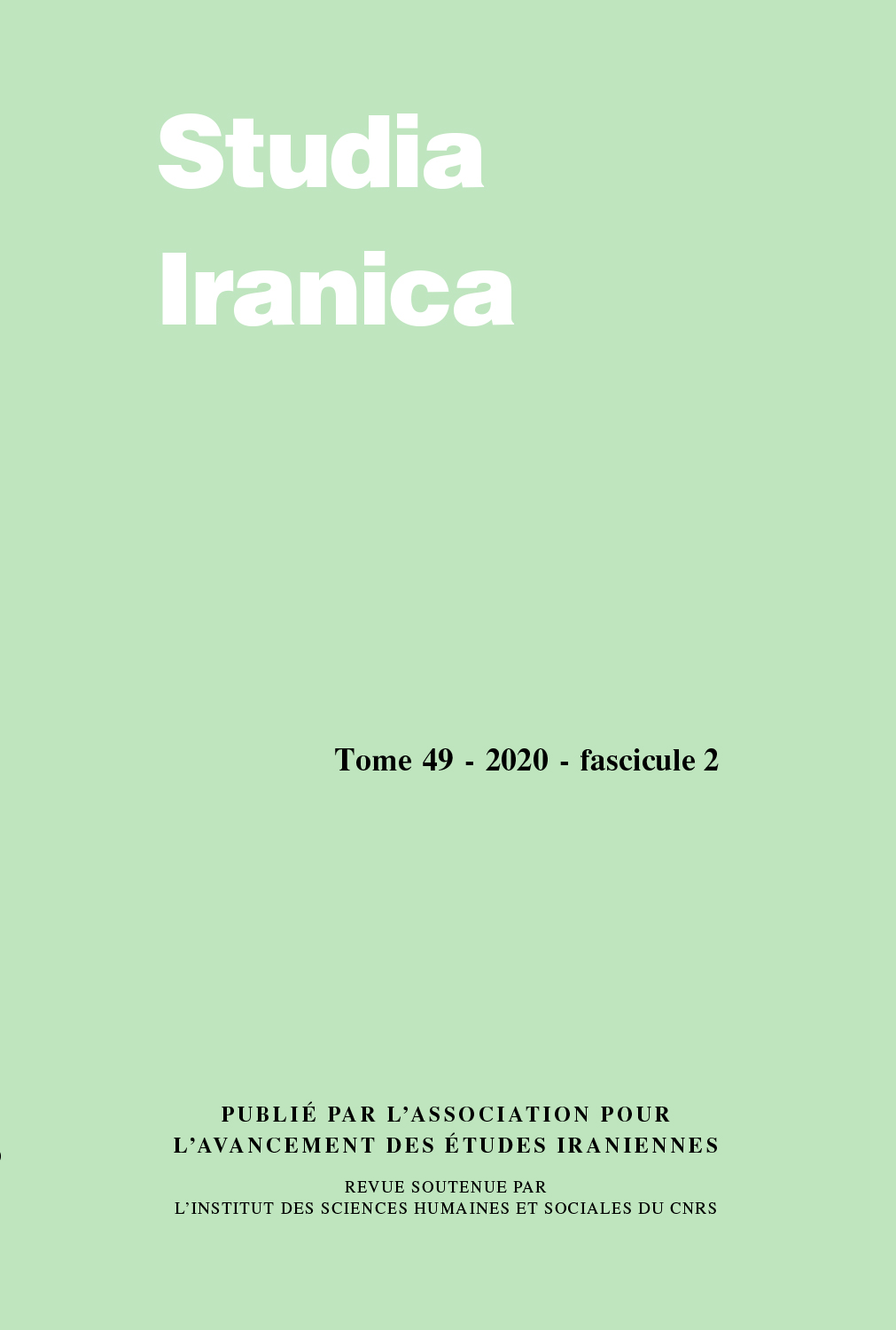next article in this issue  |

Preview first page |
Document Details : Title: Remarks on the Pahlavi Version of the Gathas Author(s): JOSEPHSON, Judith Journal: Studia Iranica Volume: 32 Issue: 1 Date: 2003 Pages: 7-34 DOI: 10.2143/SI.32.1.259 Abstract : This paper presents a preliminary comparison between the Gâthâs of the Avesta, dated approximately to 900 or 1000 B.C.E., and their translation into Pahlavi with commentary which reflects the late or post-Sasanian world of between 600-800 C.E. The central themes of worship of Ahura Mazda, the requests for formulas and precepts from Ahura Mazda, cosmogony, choice of mainiiu-, the entities and reward in this life and in the next were compared. It was found that in the treatment of each theme much of the original had been retained but with a somewhat different understanding of the main concepts. In addition the Pahlavi version had developed two themes beyond what is actually found in the Gâthâs by adding glosses and commentaries at certain points in the text. One is the centrality of the priestly office and the religious schools (h?rbedestân) and the other is the interpretation of the Gâthâs in an apocalyptic spirit. Cette étude présente une comparaison préliminaire entre les Gâthâs de l'Avesta, datables d'environ de 1000-900 avant n.è., et leur traduction en pehlevi accompagnée d'un commentaire qui reflète l'ambiance sassanide tardive et post-sassanide, entre 600 et 800 de n.è. On compare les thèmes centraux : la louange d'Ahura Mazda, la demande de formules et de préceptes à Ahura Mazda, la cosmogonie, le choix du mainiiu-, les entités, la récompense dans ce monde et dans l'autre. On constate que dans le traitement de chaque thème beaucoup de l'original a été conservé, mais avec une compréhension quelque peu différente des concepts principaux. De surcroît, en ajoutant des gloses et des commentaires à certains points du texte, la version pehlevie a développé deux thèmes qui vont au-delà de ce qu'on trouve effectivement dans les Gâthâs. L'un de ces thèmes est la place centrale de l'office du prêtre et des écoles religieuses (hêrbedestân), l'autre est une interprétation des Gâthâs dans un esprit apocalyptique. |
|


